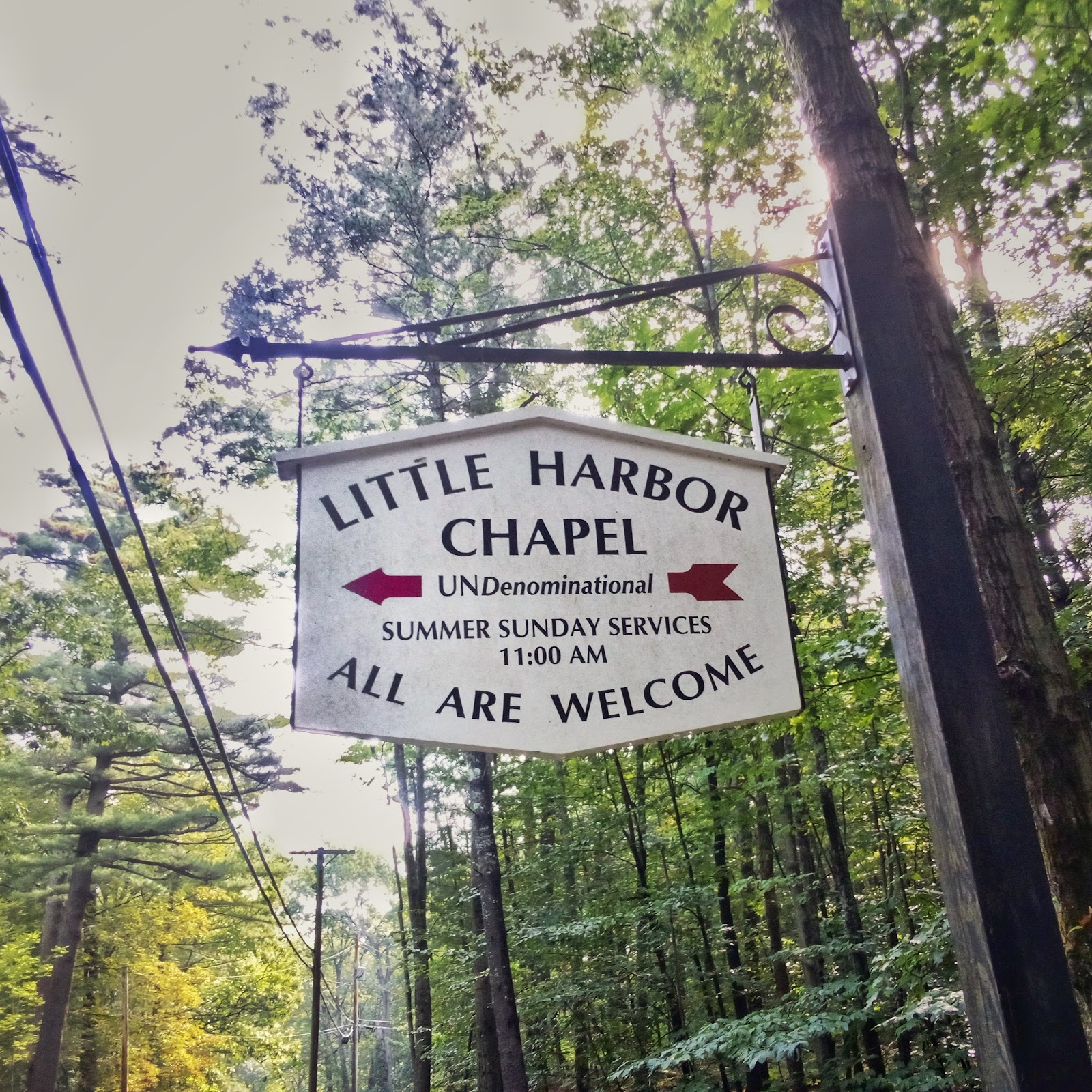Wentworth-Coolidge Mansion & Little Harbor Chapel

Back in September 2023, the day after touring Amesbury, MA, I went north to Portsmouth, NH to continue my history adventure. I had previously visited Portsmouth in September 2022, covering well-known historic attractions including but not limited to Strawbery Banke, Historic New England’s Governor John Langdon House and Rundlet-May House, Moffatt-Ladd House & Garden, and Wentworth-Gardner House. During this visit, my first stop was to see Wentworth-Coolidge Mansion and Little Harbor Chapel located on the outskirts of Portsmouth.
Little Harbor Chapel
Little Harbor Chapel (LHC) is inside Creek Farm Reservation, formerly the property of lay minister Arthur Astor Carey and now managed by the Society for the Protect on New Hampshire Forests. LHC bills itself as “an UN-denominational, seasonal Chapel... [that] welcomes persons of all faiths and orientations”. The site is open for weddings, baptisms, memorial services, and concerts. Carey constructed the chapel in 1902 but called his building Chapel of the New Jerusalem. His vision was to create a place where people of all faiths could unite over their respect for one another and love of the environment. At this site, he and his wife, Agnes Laura Mary Whiteside Carey, hosted the Russian and Japanese ambassadors during the 1905 Portsmouth Treaty, which effective ended the Russo-Japanese War before it started. (More on this event can be found at Portsmouth Historical Society & John Paul Jones House.) Today, this is a quiet spot for visitors to enjoy nature or listen to a free concert during the summer season.






Wentworth-Coolidge Mansion
Managed jointly by New Hampshire State Parks and Wentworth-Coolidge Mansion Association (WCMA), this sprawling waterside mansion was undergoing renovations during my visit. Fortunately, the park ranger at the property, who happened to be a former Historic New England (HNE) tour guide, led guests around outside the building and allowed a sneak peek of the newly restored interior. The mansion is named in part for Royal Governor of New Hampshire Benning Wentworth, who in 1750 ordered his son, Major John Wentworth, to assemble the house from the four or five existing buildings on the property. For the previous seventeen years, Gov. Wentworth had stayed at MacPheadris–Warner House, now a site on the Portsmouth Black Heritage Trail, which I had walked by during my 2022 trip.



In his position as the longest serving royal governor in colonial British America, Gov. Wentworth was among the wealthiest and most powerful men in New England, and with this authority came drama. Each time he granted a charter for a new town in New Hampshire, he kept a tract of land for himself, which did not help his popularity. In 1760 at sixty-six years old with his wife and children already dead, he married his housekeeper Martha Hilton, who was either 23 or 33 years old. The event was scandalous enough that 19th century poet Henry Wadsworth Longfellow, whose house I had visited a few weeks prior, described the impromptu wedding in the poem “Lady Wentworth”, which appeared in The Atlantic in January 1872.
The drama continued even after the death of Gov. Wentworth, who died without an heir. His nephew, another John Wentworth, inherited the governorship and tried to take the house. Martha inherited the property and promptly married Michael Wentworth, the cousin of Benning Wentworth. After a lengthy legal battle, nephew John won the property, but Martha maintained her elevated status as a host for George Washington when he visited Portsmouth as president in 1789.



As for the history of the house, the Cushing family purchased the property in 1816 and gave historic house tours starting in the 1840s. Boston-based artist John Templeton Coolidge bought the mansion as a summer getaway in 1886, giving the house its second name. Coolidge died in 1945, leaving the property to his second wife Mary Abigail Parsons Coolidge, who was twenty-two years his junior. The enormous building proved too much to keep up, so she donated the property to the state in 1954.
The grounds of Wentworth-Coolidge Mansion are free and open to the public from dawn to dusk every day of the year. The mansion is open during the summer season between Memorial Day and Labor Day. Tours are given on the hour starting from 10:00 a.m. to 3:00 p.m. and last about fifty minutes. Admission was free during renovations, while an admission price between $5 and $0 will go into effect once renovations are complete; check the Visit page on the WCMA website for the somewhat convoluted system. Like most historic buildings, the house is not accessible to those using a wheelchair or with limited mobility. Overall, I greatly enjoyed the truncated tour with its personable and highly enthusiastic guide.
Abby Epplett’s Rating System
Experience: 9/10
Accessibility: 6/10